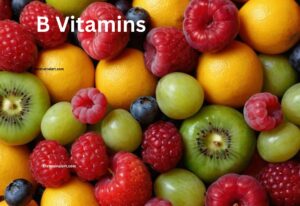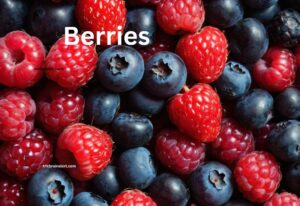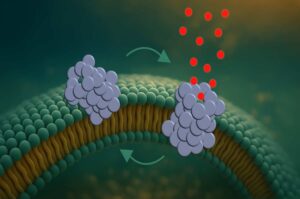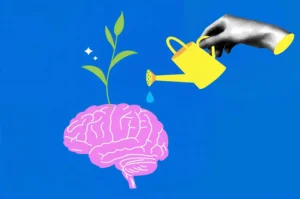Brain Foods for Cognitive Performance: The Ultimate Guide to Eating for Mental Sharpness
Maintaining optimal brain function in our fast-paced digital age is more crucial than ever. Just as a high-performance computer needs quality components to operate efficiently, our brains require specific nutrients to perform at their best. This comprehensive guide explores the foods and dietary strategies that can enhance cognitive function, memory, and mental clarity.
Why Your Brain Needs Proper Nutrition
Despite representing only 2% of our body weight, the human brain consumes approximately 20% of our daily energy intake. This remarkable organ requires a constant supply of nutrients to maintain its complex network of 86 billion neurons and perform countless calculations every second. Poor nutrition can lead to decreased cognitive performance, while the right dietary choices can enhance mental acuity and protect against cognitive decline.
Essential Nutrients for Cognitive Function
Omega-3 Fatty Acids: The Brain’s Building Blocks
Omega-3 fatty acids are crucial for brain health, particularly DHA (docosahexaenoic acid) and EPA (eicosapentaenoic acid). These essential fats make up a significant portion of brain tissue and are vital for:
- Neurotransmitter function
- Memory formation
- Learning capacity
- Mood regulation
- Protection against cognitive decline
Best sources include:
- Wild-caught fatty fish (salmon, mackerel, sardines)
- Walnuts
- Flaxseeds
- Chia seeds
- Algae and seaweed

Antioxidants: Your Brain’s Defense System
The brain is particularly vulnerable to oxidative stress due to its high energy consumption. Antioxidants help protect brain cells from damage and support cognitive function through:
- Neutralizing harmful free radicals
- Reducing inflammation
- Supporting cellular repair
- Enhancing neural communication
Top antioxidant-rich foods include:
- Blueberries and other dark berries
- Dark chocolate (70% cocoa or higher)
- Pecans and other nuts
- Artichokes
- Kidney beans
- Green tea

B Vitamins: The Energy Providers
B vitamins play a crucial role in brain function by:
- Converting food into glucose for energy
- Producing neurotransmitters
- Supporting memory formation
- Maintaining healthy brain tissue
Key sources of B vitamins:
- Whole grains
- Eggs
- Leafy greens
- Legumes
- Nutritional yeast
- Fish and lean meats

Power Foods for Enhanced Cognitive Performance
1. Fatty Fish: The Brain’s Best Friend
Fatty fish is one of the most essential foods for our brain health. Rich in omega-3 fatty acids, particularly DHA, it provides critical compounds for:
- Brain structure maintenance
- Neural communication
- Inflammation reduction
- Memory enhancement
Regular consumption of fish has been linked to:
- Better cognitive performance
- Reduced risk of neurodegenerative diseases
- Improved memory
- Enhanced focus and concentration

2. Berries: Nature’s Brain Boosters
Berries, especially blueberries, have earned the nickname “brain berries” due to their impressive cognitive benefits. Their high levels of flavonoids contribute to:
- Enhanced memory
- Improved learning capacity
- Better motor control
- Delayed cognitive aging
Research suggests regular berry consumption can:
- Improve short-term memory
- Enhance spatial navigation
- Support brain plasticity
- Reduce inflammation in the brain

3. Dark Chocolate: Smart Indulgence
High-quality dark chocolate (70% cocoa or higher) offers numerous brain benefits through its content of:
- Flavonoids
- Caffeine
- Antioxidants
- Essential minerals
Regular consumption may:
- Improve focus and concentration
- Enhance mood
- Boost memory
- Support brain blood flow

Strategic Eating for Optimal Brain Function
Timing Your Meals
The timing of your meals can significantly impact cognitive performance:
Morning:
- Start with protein-rich breakfast
- Include complex carbohydrates
- Add healthy fats for sustained energy
Midday:
- Maintain stable blood sugar with balanced meals
- Include brain-boosting foods
- Avoid heavy, processed meals that cause energy crashes
Evening:
- Focus on nutrients that support repair and regeneration
- Include foods rich in magnesium and tryptophan
- Avoid heavy meals close to bedtime
Hydration: The Often Overlooked Factor
Proper hydration is crucial for optimal brain function:
- Brain tissue is 73% water
- Even mild dehydration can impair cognitive performance
- Proper hydration supports:
- Neural transmission
- Toxin removal
- Nutrient delivery
- Temperature regulation
Supplements for Cognitive Enhancement
While whole foods should be the primary source of nutrients, certain supplements may support brain function:
Essential Supplements:
- Fish Oil (if not consuming fatty fish regularly)
- Vitamin D3 (especially for those with limited sun exposure)
- B-Complex vitamins
- Magnesium
Optional Cognitive Enhancers:
- Lion’s Mane Mushroom
- Bacopa Monnieri
- Ginkgo Biloba
- Phosphatidylserine
Always consult healthcare providers before starting any supplement regimen.
Lifestyle Factors That Complement Brain-Healthy Eating
Physical Exercise
Regular physical activity enhances the benefits of brain-healthy foods by:
- Increasing blood flow to the brain
- Promoting the production of new brain cells
- Reducing inflammation
- Supporting mood and mental clarity
Quality Sleep
Proper sleep is essential for:
- Memory consolidation
- Toxin removal
- Neural repair
- Cognitive processing
Stress Management
Chronic stress can negate the benefits of a healthy diet. Incorporate:
- Meditation
- Deep breathing exercises
- Regular relaxation practices
- Stress-reducing activities
Foods to Avoid for Better Brain Function
Just as important as knowing what to eat is understanding what to avoid:
Minimize or Eliminate:
- Processed foods high in trans fats
- Excessive sugar and artificial sweeteners
- Alcohol (especially in excess)
- Foods with artificial additives and preservatives
- High-mercury fish (shark, swordfish, king mackerel)
Creating Your Brain-Healthy Meal Plan
Sample Daily Menu:
Breakfast:
- Greek yogurt with blueberries and walnuts
- Green tea
- Whole grain toast with avocado
Lunch:
- Grilled salmon salad with dark leafy greens
- Quinoa
- Olive oil dressing
Snacks:
- Dark chocolate (1-2 squares)
- Mixed nuts and seeds
- Fresh fruit
Dinner:
- Lean protein (fish, poultry, or legumes)
- Roasted vegetables
- Sweet potato or brown rice
- Herbs and spices
Conclusion
Optimizing your diet for brain health is a powerful way to enhance cognitive performance and protect against mental decline. By incorporating these brain-boosting foods and following a consistent, nutrient-rich eating pattern, you can support your brain’s function and maintain mental sharpness throughout your life. Remember that dietary changes work best when combined with other healthy lifestyle practices such as regular exercise, adequate sleep, and stress management.
The key is to view brain-healthy eating not as a temporary diet but as a long-term investment in your cognitive health. Start gradually, make sustainable changes, and consider how different foods affect your mental performance. With time and consistency, you can build eating habits that support optimal brain function and help you maintain the mental edge you need in today’s demanding world.
Read Also:
9 Quick Brain Exercises to Boost Your Memory and Sharpen Focus
Frequently Asked Questions About Brain-Boosting Foods and Cognitive Nutrition
General Questions
Q: How quickly can I expect to notice improvements in cognitive function after changing my diet?
A: Individual responses vary, but many people report subtle improvements in mental clarity and focus within 2-4 weeks of consistent dietary changes. More significant improvements in memory and cognitive function typically become noticeable after 3-6 months of maintaining a brain-healthy diet. Remember that nutrition is just one factor – sleep, exercise, and stress management also play crucial roles in cognitive performance.
Q: Can brain-healthy foods make me smarter?
A: While foods can’t increase your IQ, they can optimize your brain’s performance by providing essential nutrients for neural function, improving concentration, enhancing memory, and supporting overall cognitive health. Think of it as giving your brain the best fuel to operate at its full potential rather than increasing its baseline capacity.
Q: Is it necessary to eat fish to maintain good brain health?
A: While fatty fish is an excellent source of omega-3 fatty acids, it’s not the only option. Vegetarians and vegans can obtain brain-healthy nutrients from sources like:
- Algal oil supplements (for DHA)
- Walnuts and flaxseeds
- Seaweed and microalgae
- Hemp seeds
- Supplemental DHA derived from algae
Q: Are supplements as effective as whole foods for brain health?
A: Whole foods are generally superior to supplements because they:
- Contain a complex mix of complementary nutrients
- Provide fiber and other beneficial compounds
- Are better absorbed by the body
- Include cofactors that aid nutrient utilization However, supplements can be useful for addressing specific deficiencies or when dietary restrictions limit food choices.
Specific Food Questions
Q: How much dark chocolate should I eat for brain benefits?
A: The optimal amount is 1-2 squares (20-30g) of dark chocolate with at least 70% cocoa content per day. More isn’t necessarily better – chocolate is calorie-dense and should be consumed in moderation.
Q: What’s the best breakfast for mental performance?
A: The ideal brain-boosting breakfast includes:
- Protein (eggs, Greek yogurt, or lean meat)
- Complex carbohydrates (oatmeal, whole grain bread)
- Healthy fats (avocado, nuts, or seeds)
- Antioxidant-rich fruits (berries, citrus)
- Hydration (water, green tea, or coffee)
Q: Are coffee and caffeine good for brain function?
A: Moderate caffeine consumption (200-400mg per day) can:
- Improve alertness and concentration
- Enhance memory formation
- Boost mental energy However, individual tolerance varies, and overconsumption can lead to anxiety and sleep disruption.
Diet and Lifestyle Questions
Q: How does intermittent fasting affect brain function?
A: Research suggests intermittent fasting may:
- Promote the production of brain-derived neurotrophic factor (BDNF)
- Support cellular repair processes
- Improve insulin sensitivity
- Enhance cognitive function However, it’s not suitable for everyone, and consistency with nutrient-rich meals is generally more important than timing.
Q: Can certain foods help with exam preparation and mental performance?
A: Yes, strategic eating can support studying and exam performance:
- Eat regular, balanced meals to maintain stable blood sugar
- Include omega-3-rich foods for memory support
- Stay hydrated
- Consume antioxidant-rich foods to combat stress
- Time caffeine intake carefully to avoid sleep disruption
Q: How does alcohol affect brain nutrition?
A: Alcohol can:
- Interfere with nutrient absorption
- Deplete B-vitamins
- Disrupt sleep quality
- Impair memory formation Moderate consumption (1 drink/day for women, up to 2 for men) appears safe for most adults, but less is better for cognitive health.
Special Populations
Q: Are there special considerations for vegetarians and vegans?
A: Yes, plant-based eaters should pay special attention to:
- Vitamin B12 supplementation
- Omega-3 fatty acid sources
- Iron-rich foods combined with vitamin C
- Zinc intake
- Protein variety and adequacy
Q: How should older adults modify their diet for brain health?
A: Aging brains benefit from:
- Increased antioxidant intake
- Higher levels of omega-3 fatty acids
- Adequate B-vitamin consumption
- Consistent protein intake
- Regular hydration
- Mediterranean diet patterns
Common Myths and Misconceptions
Q: Do I need expensive “superfoods” for optimal brain function?
A: No, many affordable, common foods provide excellent brain nutrition:
- Regular berries (frozen are fine)
- Common nuts and seeds
- Eggs
- Leafy greens
- Legumes
- Whole grains
Q: Is a low-carb diet better for brain function?
A: The brain requires glucose for optimal function. While ketones can provide alternative fuel:
- Moderate carbohydrate intake from whole food sources is generally optimal
- Very low-carb diets may affect concentration initially
- Individual responses vary significantly
- The quality of carbohydrates matters more than the quantity
Q: Can brain foods help prevent or treat cognitive decline?
A: While nutrition plays a role in brain health:
- No single food can prevent cognitive decline
- A balanced, nutrient-rich diet may reduce risk
- Early adoption of healthy eating patterns is beneficial
- A diet should be part of a comprehensive approach including exercise, social engagement, and mental stimulation
Implementation Tips
Q: How can I make brain-healthy eating more affordable?
A: Several strategies can help:
- Buy frozen fruits and vegetables
- Purchase nuts and seeds in bulk
- Choose canned fish when fresh is expensive
- Grow herbs and some vegetables
- Plan meals to minimize waste
- Focus on seasonal produce
Q: How can I maintain brain-healthy eating when traveling?
A: Try these strategies:
- Pack portable brain foods (nuts, dark chocolate, dried fruits)
- Research restaurants in advance
- Carry a water bottle
- Choose hotels with refrigerators
- Focus on simple, whole-food options when eating out
Q: What’s the minimum effective change I can make for better brain nutrition?
A: If making only a few changes, prioritize:
- Adding fatty fish or omega-3 supplements
- Increasing vegetable and fruit intake
- Reducing processed food consumption
- Ensuring adequate hydration
- Including nuts and seeds daily









